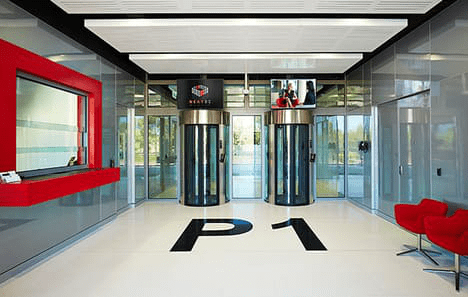Written by: Adam Gardner - NEXTDC Head of Products
It seems unbelievable that only 12 weeks ago, the focus for many organisations was ‘business as usual’. Indeed, many organisations would have been considering disaster recovery, but through a traditional lens of fires, floods, terrorism and the like. Global pandemics would rarely be considered, with the exception of a few outliers such as Bill Gates and his excellent 2015 TED presentation.
The COVID-19 pandemic has caused mass disruption to organisations across the globe, but importantly it’s created a need to review your business continuity plan, and what changes are needed to support your current environment moving forward.
Perhaps let’s consider the components that contribute to a great business continuity plan.
Don’t forget your people
Very few organisations can operate without people. It’s widely established that workplace stress decreases output and has a significant impact on employee mental wellbeing and can cause many health related side-effects. Ensuring your business continuity plan considers your team and provides the necessary support is critical to your success.
Have a plan!
It sounds obvious, but having a plan is step one. For some organisations, this plan will be complex, detailed and cover a wide range of contingencies. For others, it could be a simple list of things to do. Having a plan allows your organisation to focus on implementation rather than planning, saving valuable time during the crisis.
Allow for contingency
Nothing will go exactly to plan. Throughout the crisis you’ll find unexpected issues. Be prepared to adapt and adjust to the situation as it unfolds. Depending on the severity, some or all of your customers, business partners and suppliers will likely be affected. These upstream and downstream impacts may be beyond your control; however, you can control how your organisation responds. Being prepared to alter your plan will help navigate the rapidly changing situation.
Keep it simple and realistic
Albert Einstein hit the nail on the head when he said “everything should be made as simple as possible, but not simpler.” During a crisis, cognitive and emotional load on the team will be higher. Your team still needs to run the organisation with the added pressure of responding to unknown events. By keeping your plan as simple as possible, you reduce the amount of brainpower required to decode your business continuity strategy.
Test your plan
Irrespective of the many hours spent crafting your business continuity plan, you can be sure there will be a wide range of things that could and will go wrong. Testing the plan in advance will allow you to proactively negate many of these issues ahead of time. Doing so will take time and effort. But attempting to solve these issues in real time in the midst of the crisis will take far more time and effort.
Communicate and communicate again
During a crisis, everyone will be disrupted. Normal service levels and processes may equally be impacted and need adjusting. Clear and frequent communication ensures customers and stakeholders are appraised on changes made, and how it impacts them. By ensuring clear communication, you remove ambiguity and uncertainty, dramatically improving the customer experience as stakeholders can adapt their situation accordingly.
Plan to excel
Perhaps counter-intuitively, a crisis can be an opportunity to improve. Competitors that haven’t planned ahead may be in disarray, allowing your organisation opportunity to excel. During wide-spread disruption, organisations with a clear, well communicated plan show that they’re organised, prepared and aware of their customers’ needs. Knowing that your organisation has a plan that will be implemented reduces the strain on your customers as it’s one less thing they need to worry about.
Addressing these key themes will ensure a solid footing for your business continuity or disaster recovery plan. Due to the nature of COVID-19 and similar pandemics, additional considerations should also be taken into account.
Don’t forget your people!
With social distancing mandated, looking after your team becomes doubly important. People are social animals, and research has shown that isolation and loneliness can increase the risk of premature death. With your team working from home, ensuring frequent check-ins and actively promoting virtual engagement is crucial to ongoing success and navigating the crisis.
Supply chain impact
During global events, supply chains will be challenged. You may be unable to source materials or components for considerable periods of time. Where possible, have contingency plans in place. Make sure you are in regular communication with your suppliers and have a clear understanding of their capabilities.
Increased risk of employee absence
During a pandemic, employee absenteeism can be higher than other disasters. In a fire for example, it’s likely that your team can still work from somewhere, however during a viral pandemic, many employees may be sick at one time and unable to work.
It’s important that you consider steps such as team splitting where multiple teams that perform the same role, operate at different times. Consider operating with an A and B team, or for larger organisations, perhaps an A, B, C & D team. The separation provides an “air-gap” between teams, preventing a business function becoming unavailable. Like many of our customers, you may also consider housing critical teams at facilities providing High Availability Business Continuity office space such as NEXTDC so you continue to run your mission critical teams completely uninterrupted.
Stay calm and carry on
Remember that this will be a difficult and challenging period. Perhaps the most challenging time in your life and career. Each of us will have unique pressures and challenges. Stay conscious of what others are going through to help perspective. Things won’t always remain this challenging and together we can get through it.
We’re always ready to help in any way we can. Stay safe and look after each other.


